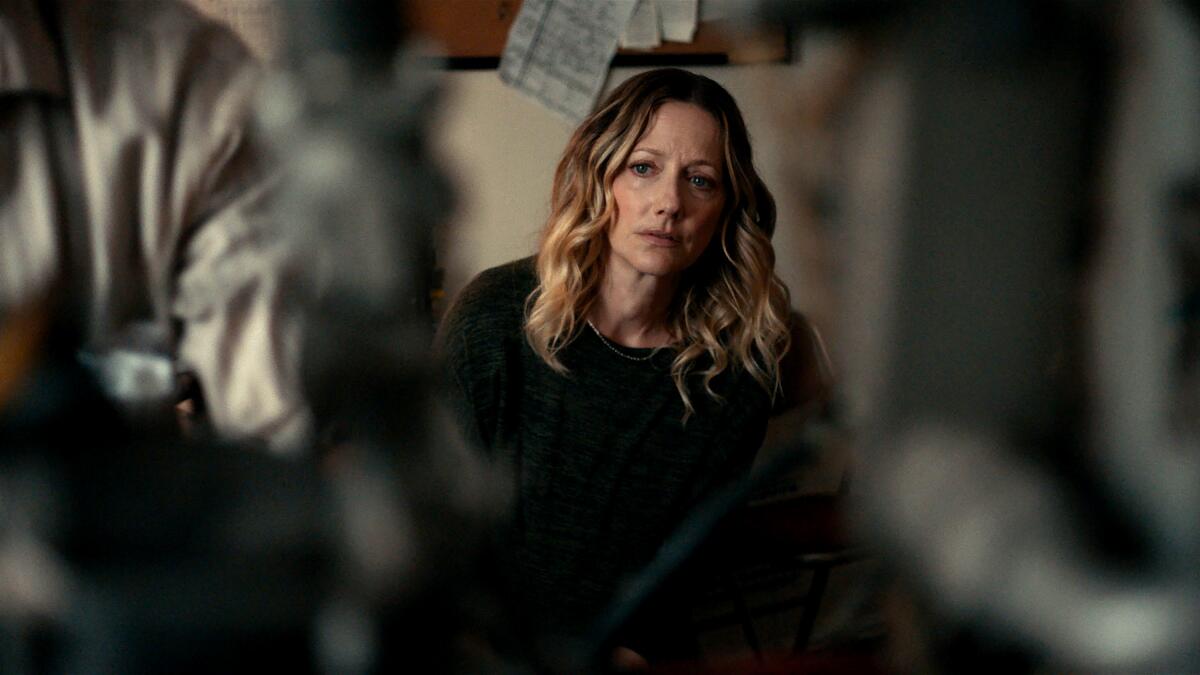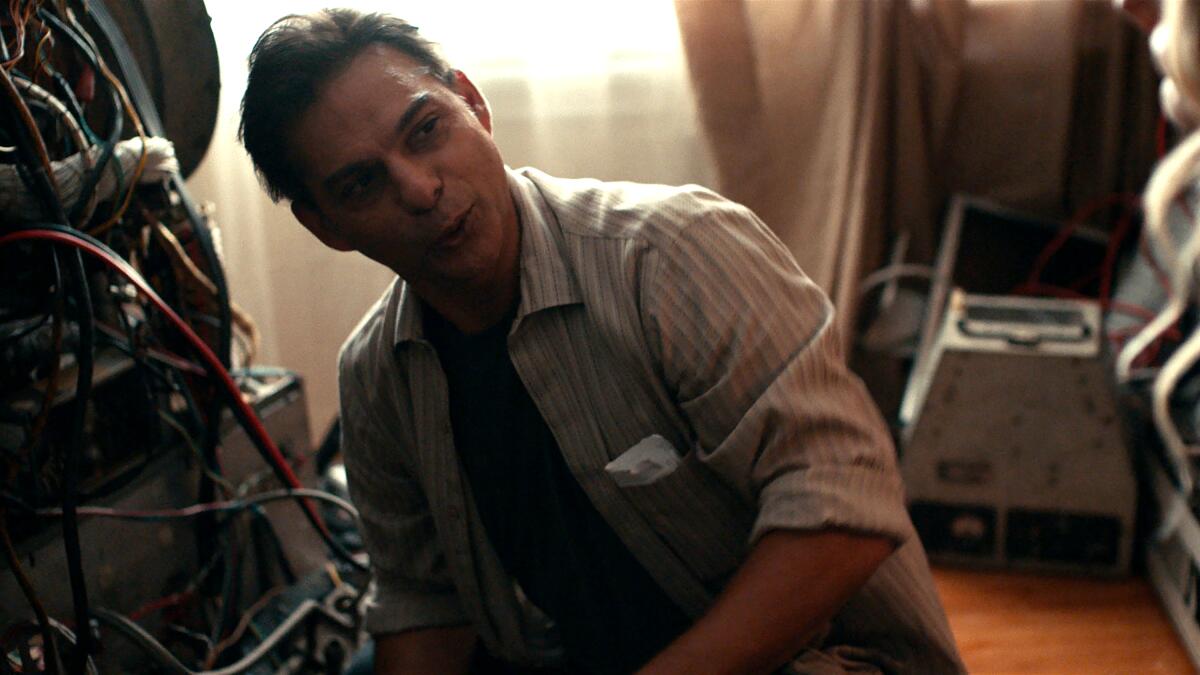Review: In sci-fi thinker ‘Aporia,’ altering the past has personal consequences

- Share via
When it comes to time travel, the go-to scenario is usually, of course, snuffing out Hitler. But if we actually could take advantage of an inexplicable wormhole, chances are we’d be more concerned with meaningfully fixing our own lives.
It’s that opportunity that provides the tightly wound cause-and-effect power to writer-director Jared Moshé’s small-scale fantasy “Aporia.” A mix of rough-around-the-edges logic and heartfelt suspense, it likably reclaims sci-fi’s speculative, moral heft from the province of shiny, plastic world-ending epics, dropping it squarely onto, as “Casablanca” memorably put it, “the problems of three little people.”
One of those three is Judy Greer’s stressed-out, grieving Sophie, a long-term care nurse living with her 11-year-old daughter, Riley (Faithe Herman) in East Los Angeles. It’s been eight months since her husband was killed by a drunk driver, but Sophie also has lost all emotional connection to Riley, who flounders at school and is cold toward the parent who isn’t her beloved dad.
The second of the three is Sophie’s close friend Jabir (Payman Maadi), a ride-share driver and Iranian exile years away from his life as a physicist. He can’t stop thinking about the Revolutionary Guard member who separated him from his family, and at night tinkers on a clumped hunk of old metal, car batteries, cables and ’80s-era computer hardware that suggests a lonely soul’s private madness. (Or something the Iron Giant might spit up.)

Commiserating one night over their situations, Jabir tells Sophie that what he’s been working on could be a solution. It’s a particle-manipulating machine with limited power but a very particular use: It can kill anyone in the past with an abstract wave directed to a specific point in time. Which, in turn, makes the third person in this story, Sophie’s dead husband, Malcolm (a fine Edi Gathegi), suddenly around again after Sophie jumps at the chance to push a button that alters the past and kills the drunk driver who wrecked her life.
However, nothing is simple about forever altering the space-time continuum. First off, there’s now a timeline of memories Sophie can’t access (because using the contraption means keeping the old ones). But also, after acting on understandable curiosity, there’s her nagging guilt about lives worse off, namely her victim’s widow, Kara (Whitney Morgan Cox), now leading a decidedly harder life with her own daughter (Veda Cienfuegos) for an entirely different causal reason. But the machine has the answer, right? Just find the right villain in someone’s past, and murder suddenly looks like heroism.
Might “Aporia” — a Greek word conveying philosophical puzzlement — have benefited from the kind of tightening and oiling the Christopher Nolan of “Memento” and “Inception” (but not “Tenet”) could offer? Perhaps, if this movie’s focus were geared toward heady, white-knuckle thrills. But Moshé is clearly more interested in the heart’s imperfect logic than flow-chart rigor. With its simplified quantum mechanics, abiding sensitivity and the sleepy neighborhood richness of Nicholas Bupp’s Los Angeles cinematography, “Aporia” needn’t stay one step ahead of smart viewers to keep us intrigued and off-balance, glued to how these flawed, well-intentioned characters use their irrevocable power and face the consequences.
A lot of that mood is reflected in Greer’s pained openness. Long a valued if underrecognized actor, she perfectly embodies the movie’s emphasis on the desperation of hidden lives rather than outsized heroes. Conquering time travel may be a big deal, but Greer’s affecting portrait of a woman processing a second chance keeps the miracles of “Aporia” grounded and not flashy — a portal to human epiphanies, not digitally rendered spectacle. No wonder Moshé gives pride of last frame to her expressive face, and a smile of comforting ambiguity. After all that’s transpired, it’s the best kind of lingering special effect.
'Aporia'
Rating: R, for some language
Running time: 1 hour, 44 minutes
Playing: Starts today at Landmark Westwood
More to Read
Only good movies
Get the Indie Focus newsletter, Mark Olsen's weekly guide to the world of cinema.
You may occasionally receive promotional content from the Los Angeles Times.










